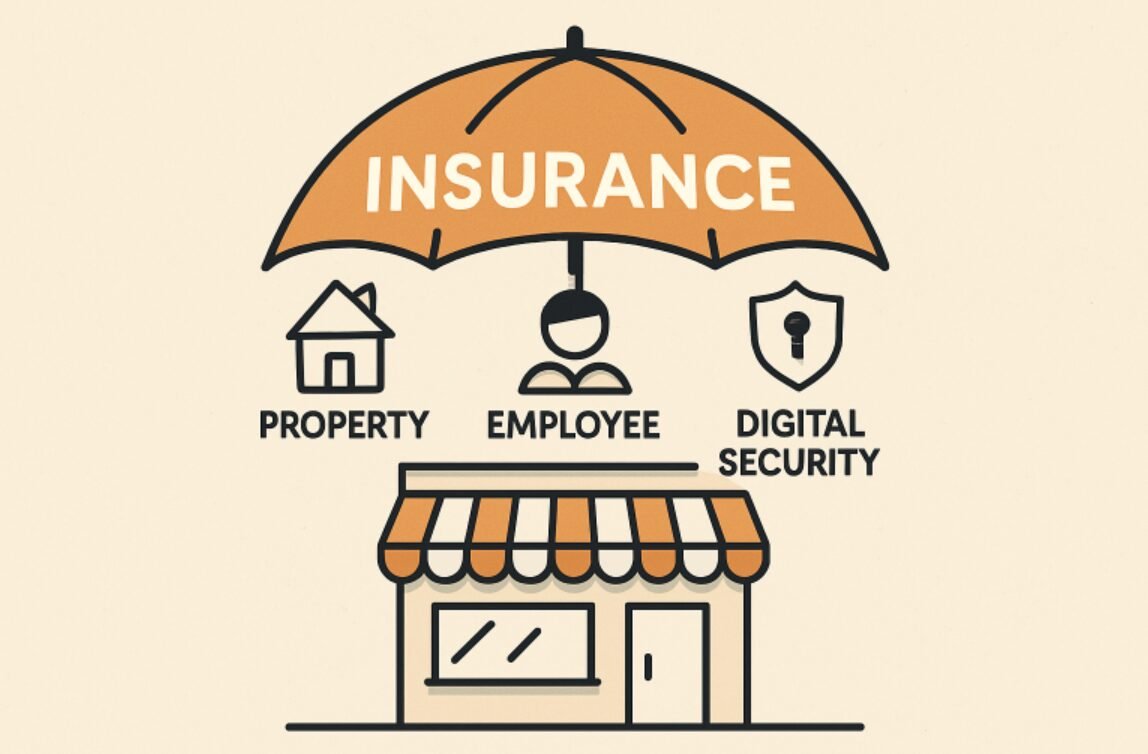Running a small business means facing many challenges, and one of the most important—yet often overlooked—aspects is ensuring proper insurance coverage. The right insurance policy doesn’t just offer peace of mind; it serves as a fundamental safety net, protecting your business from unforeseen setbacks, lawsuits, or catastrophic losses. Many small business owners mistakenly believe that only large companies or those in high-risk industries require comprehensive insurance. In reality, small businesses are frequently more vulnerable to risks that could cripple their operations or finances. This is why obtaining the right insurance package is critical for every entrepreneur, regardless of industry. For a quick overview of tailored insurance solutions for various business types, check out https://www.thehartford.com/business-insurance.
Another misconception is that personal insurance policies, such as homeowners or auto insurance, will adequately cover business losses incurred in the course of work. In practice, most individual insurance plans specifically exclude business-related risks—from equipment theft to a slip-and-fall incident on commercial premises—leaving your operations exposed. Learning about the essential types of commercial insurance and how they work together is a proactive step all business owners should prioritize. For comprehensive information about trim business insurance options and best practices, the U.S. Small Business Administration’s emergency preparedness guide is an excellent resource.
The insurance landscape for small businesses has evolved rapidly in recent years, with new risks, such as cyber threats and pandemics, emerging. As your company grows and diversifies, so do its exposure points. Failing to adapt insurance coverage to match these changing dynamics could hinder long-term success.
In this article, we’ll clarify the coverage types every small business owner should consider, how these policies work, and ways to tailor protection to meet your unique industry requirements.
General Liability Insurance
General liability insurance forms the foundation of commercial insurance for businesses of all sizes. It covers claims arising from everyday business activities—such as bodily injury, property damage, and personal injury (like libel or slander)—that occur on your business premises or as a result of your operations.
For instance, if a customer slips and falls in your store, or if you accidentally damage a client’s property during a service call, general liability insurance will help cover legal costs and potential settlements. Without this coverage, even a single lawsuit could result in financial ruin for a small business.
Property Insurance
Property insurance protects your physical assets, which can include your building, equipment, inventory, furnishings, and signage. This coverage guards against losses due to fire, theft, vandalism, and certain natural disasters, ensuring you can repair or replace essential items to continue operations.
Many policies also provide coverage for loss of income if your business is unable to operate after a covered loss. It’s crucial to review your policy carefully to ensure coverage for the types of disasters most likely to affect your region. For more insights, review this helpful summary from Forbes on business property insurance.
Workers’ Compensation Insurance
Most states require businesses with employees to carry workers’ compensation insurance, which covers medical bills and a portion of lost wages if an employee is injured or becomes ill due to their job. This coverage protects both workers and employers, thereby reducing the risk of costly lawsuits arising from workplace injuries.
The claim process typically involves promptly reporting injuries, providing employer documentation, and coordinating with the insurance carrier to ensure benefits are paid out efficiently. Employers are responsible for maintaining a safe workplace and complying with relevant regulations to reduce risk.
Professional Liability Insurance
Often referred to as errors and omissions (E&O) insurance, professional liability coverage is crucial for service-based businesses. It protects your company from claims of negligence, mistakes, or failure to deliver promised services that result in a client’s financial loss.
This type of policy is especially vital for consultants, health practitioners, designers, accountants, and other professionals whose advice or service could directly impact clients. Even the most skilled and careful professionals can be sued for circumstances beyond their control.
Cyber Liability Insurance
As cyber attacks and data breaches become more frequent, cyber liability insurance is now essential for many small businesses. This policy covers the fallout from hacking incidents, ransomware, data theft, and breaches affecting sensitive customer or employee information.
Coverage typically includes legal fees, notification costs, credit monitoring services for affected customers, and help in repairing reputational harm. Investing in cyber insurance is essential for any company that stores customer or financial data online.
Business Interruption Insurance
Few things are more disruptive than a sudden closure caused by fire, flood, or other disasters. Business interruption insurance compensates you for lost income and ongoing expenses when your operations are temporarily halted due to a covered event.
It’s essential to work closely with an insurance agent to accurately determine the appropriate coverage limits based on your revenues, expenses, and risk exposures, ensuring your business can withstand and recover from major disruptions.
Tailoring Insurance to Your Business Needs
No two businesses are exactly alike, and neither are their risk profiles. Begin by conducting a thorough risk assessment, taking into account your industry, size, location, and the specific hazards you encounter. For example, a construction firm will have very different needs than a home-based consulting business.
Consulting with a professional insurance advisor is a wise move—even if you’re confident in your research. These experts understand regulatory requirements, common risks in your field, and can recommend policy combinations that provide optimal, cost-effective coverage as your business evolves. Periodic reviews of your insurance coverage ensure you’re protected as circumstances change.
Conclusion
Protecting your small business with adequate insurance coverage is not just a legal or financial responsibility—it’s a strategic decision that supports long-term growth and stability. By understanding the coverage options available and tailoring policies to fit your unique needs, you can effectively safeguard your business against unexpected threats.
For deeper insights into insurance trends among American small businesses, the latest survey report from NEXT Insurance highlights key statistics and preparedness gaps.




